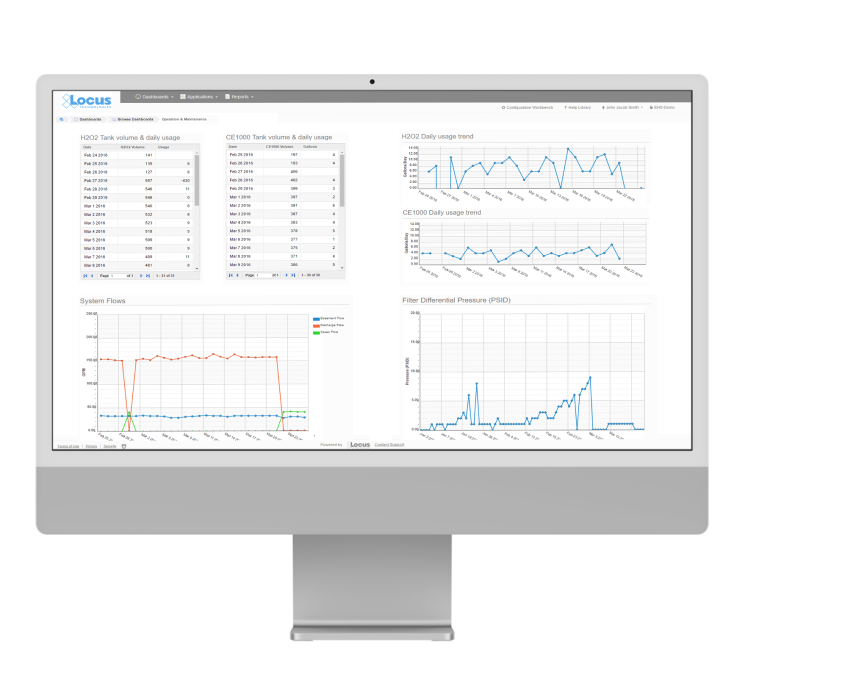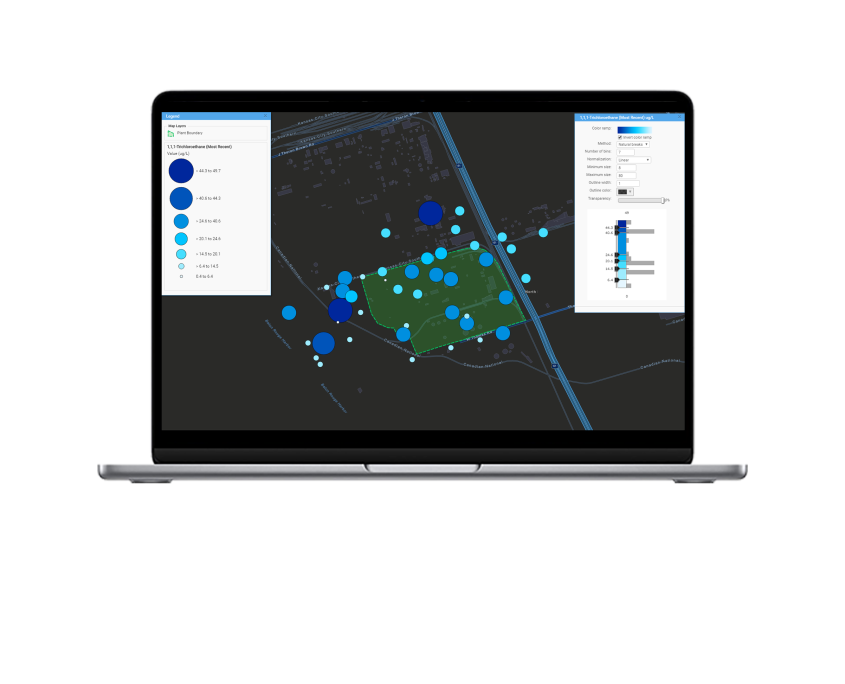Connect to a variety of 3rd party software systems like ERP software, HR platforms, business intelligence, supply chain, and project management systems
Locus software offers robust API integrations with a wide range of third-party products, enabling seamless data flow and enhanced efficiency.
With multiple methods to load data into Locus software—such as mobile input forms, supply chain surveys, and file uploads (including formats like XLS, TXT, and EDD)—we make data entry simple and adaptable to your workflows.
As part of our commitment to flexibility and innovation, Locus EHS, sustainability, and environmental data management solutions are designed to integrate with other applications effortlessly. These integrations streamline processes, improve access to critical information, and enhance communication across your organization and with external stakeholders.
Built with integration at its core, Locus software ensures compatibility with your existing systems. Our expert implementation team brings years of experience and a proven track record of successful integrations, ensuring that your transition is smooth and effective. Experience the power of integrated data management with Locus.
Benefits
Locus clients are happy here. We have 11,000+ active users and a 98% renewal rate year after year.
11,000+
Active Users
98%
Renewal Rate Year After Year
A full suite of REST APIs
Locus provides a full suite of REST APIs that can be used to populate data from external data sources. APIs serve as a bridge between two applications and updates in real time with data changes. Data requests to the API return the values that currently exist in the dataset. Locus uses REST APIs, meaning they are accessed by simply following a URL. User queries in one application pull data from another over the internet.
Connect internal systems
Many potential software buyers want to integrate an existing on-premises system with Locus cloud software. This type of integration lets you take advantage of information in existing systems without the additional user burden of accessing multiple software systems, making it easier to perform parts of a unified business process. One example is connecting Locus cloud software to an onsite Enterprise Resource Planning (ERP) system such as SAP via API. Learn the details of Locus ERP integrations in our technical white paper titled, “How to extend your EHS software with integrated systems.”
Business intelligence platform integrations
Organizations with EHS data may already have invested time, money, and effort to create custom visualizations and reports in business intelligence software like PowerBI or Salesforce Tableau. Locus integrates with both products via API, enabling clients to leverage their Locus data within their existing data visualizations. Learn more in our technical white papers.
Easily report compliance data via public API
Government agencies and other public/private entities are increasingly delivering services or requiring data submissions via publicly available APIs. This helps both parties by significantly streamlining data submission, and it all but eliminates the tedium and the likelihood of errors from manual and repetitive data entry. One example where APIs are highly useful is the process of submitting annual greenhouse gas emissions, air quality reports, and e-Manifests to the US EPA.
GIS apps and Google Maps integrations
Using ESRI public APIs, Locus software can validate location data for address formatting and accuracy across a range of applications. This type of integration is easy to configure using a drag-and-drop form builder.
The Locus GIS+ module lets users display Locus data (field and lab results) on a site map. Users can post data results to the map; identify map features and all data collected at each feature; create graduated color and size maps; create analytical and groundwater contours; and design print-ready output. Locus GIS+ can also be used alone, but clients with an ArcGIS online account can display their maps in Locus after authenticating against the ESRI cloud; these layers can be used in spatial queries to return Locus data. Data can be integrated with other GIS apps by using the Locus EIM Expert Query module and the Locus EIM API.
Google Maps APIs can be used to show relevant maps of sites or facilities and overlay useful information like terrain, demographics, or traffic to make Locus data more meaningful and understandable. Similarly, devices with GPS tracking can be visualized in dashboards to see current sampling locations or inspection locations.
Regulatory content integrations
Locus clients can connect with third-party providers to get information about the latest important environmental regulations delivered within their software application. This type of integration enables Locus users to access clear analysis and updates on evolving environmental regulations related to permits being managed in Locus.
Smart meters and portal integration
Another common need is “portal integration,” or the melding of various streaming data sources (such as utility data, CEMS, meter data and IoT data) into a single system to enable better data analysis and insight. For example, many companies have multiple continuous monitoring systems that generate huge amounts of data at frequent intervals. With such huge volumes of data, it is hard to review and act without condensing the information into an understandable format. Locus aggregates various data sources and displays the information in a meaningful, unified view that is easier to interpret.
Single Sign-on (SSO) integrations
Larger companies typically request single sign-on (SSO) for their users when accessing a third-party cloud software like Locus. This type of integration with identity providers is especially important for large enterprises with many geographically distributed users. The result for the users is a seamless workflow and one less set of credentials to manage.
Did you know?
Locus API integrations with third-party products simplify ESG and CSRD reporting. These types of disclosures span a wide range of data types across the enterprise, from financials and social equity/DEI, to emissions, water, energy use, and incidents. Locus integrations help put the material data at your fingertips.


